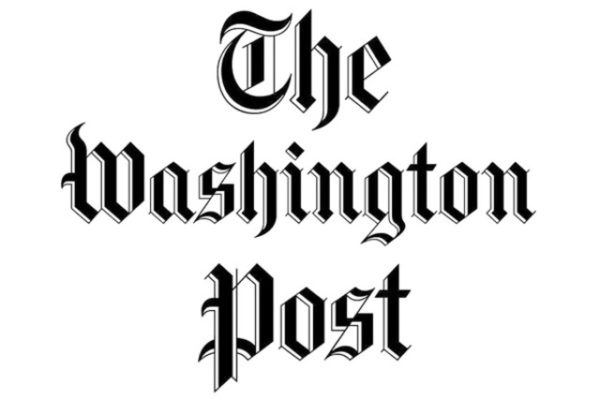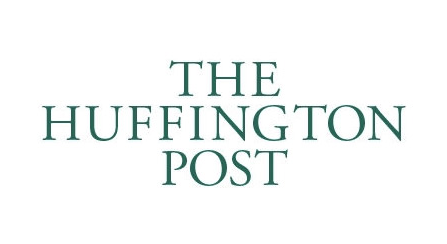Securities Fraud
Securities Fraud Whistleblowers Now Poised to Reap Huge Rewards.
On July 21, 2010, the Dodd-Frank Wall Street Reform & Consumer Protection Act was signed into effect, finally giving teeth to the SEC whistleblower program. The Act entitles securities fraud whistleblowers to between 10-30% of SEC recoveries for original information prompting “any judicial or administrative action brought by the commission under the securities laws that results in monetary sanctions exceeding $1,000,000.” Prior to the Dodd-Frank Act, there was no minimum whistleblower award — meaning that successful whistleblowers could risk their careers and still receive nothing — and the maximum award was only 10%. As a result, prior to the enactment of the Dodd-Frank Act, few whistleblowers were motivated to come forward and those that did come forward were awarded with paltry sums if they received any reward at all.
Madoff Whistleblower Addresses Congress
What if the Madoff WhistleBlower Could Have Been Rewarded?
Consider Madoff whistleblower, Harry Markopolis. His warnings to the SEC of the largest securities fraud in American history went largely ignored, and he received nothing for uncovering the $64.8 billion fraud. While it must be little consolation to Markopolis, under the newly enacted Dodd-Frank Act, he would be entitled to a minimum of 10% of any disgorgement, pre-judgment interest, and civil-penalty that the SEC ultimately recovers from the Madoffs. While much of the Madoff fortune was gone by the time that his fraud was discovered, theoretically Harry Markopolis would have been entitled to as much as $6.4 billion in whistleblower rewards. Given his heroic commitment to uncovering the fraud, it is likely that a brave soul like Harry Markopolis would have returned such a reward to the many investors that Madoff defrauded.
SEC Whistleblower Rewards Thus Far.
While there was a muted buzz about the SEC whistleblower payout to whistleblowers’ Karen and Glenn Kaiser, who received the largest SEC whistleblower award to date — $1,000,0000 — for reporting Mrs. Kaiser’s ex-husband, David Zilkha, for insider-trading. Zilkha, a former Microsoft employee, allegedly gave insider-information about Microsoft to hedge-fund manager, Arthur Samberg, at Pequot Capital. While the $1M award was extremely large compared to previous sums paid to whistleblowers by the SEC, it would have been a minimum of almost three-times that amount under the new Dodd-Frank provisions (the Pequot SEC settlement was $28 million). And if the beefed-up SEC whistleblower program is even close to as promising as its cousin — the False Claims Act — then the Kaiser whistleblower award will be paled by future SEC whistleblower awards. The Department of Justice estimates that $13 billion has been recovered under the federal False Claims Act since the act was overhauled in 1986 and that more than $2 billion has been paid to whistleblowers.
The Scope of the New Securities Fraud Whistleblowers Reward Program.
The new SEC whistleblower provisions under the Dodd-Frank Act also expand the scope and types of fraud to which the program applies. Previously, the SEC only paid rewards for information regarding insider-trading, such as that paid to the Kaisers for the Pequot insider-trading fraud. This could be particularly important in the area of Foreign Corrupt Practices Act investigations, which have international implications and have historically amounted for some of the SEC’s largest settlements and judgments (e.g., in 2009 KBR paid $402 million in criminal fines; in 2008 Siemens paid $450 million).
Perhaps most importantly, the new provisions provide that a whistleblower’s identity may be protected and held confidential if the whistleblower reports its original information to the SEC by and through his or her attorney. After the investigation is concluded, however, a whistleblower will have to reveal her identity in order to receive the statutory share of the award. Exactly how these new provisions will be implemented is ultimately up to the SEC and has yet to be determined. Pursuant to Section 924, the SEC must promulgate rules and regulations for implementing the whistleblower reward and protection provisions of the Dodd-Frank Act within 270 days of its enactment — on or before April 18, 2011.
Awards under the Dodd-Frank whistleblower provision have become increasingly more frequent and larger as whistleblowers and the SEC have together worked to break the code of silence that long persisted in the securities industry. For instance, a $30 million award was provided to a SEC whistleblower, the largest to date under the new laws, in 2014. Followed by a $17 million award and a $22 million award, both awarded in the summer of 2016. As of the time of the $22 million award, the SEC whistleblower provisions have awarded $107 million to 33 separate whistleblowers. Further, as provided by the SEC provisions, neither the identity nor the details of fraud have been revealed.
Although the new whistleblower provisions are in their infancy, Frohsin Barger & Walthall’s attorneys are well-versed in whistleblower litigation in general and are responsible for record recoveries under the False Claims Act; accordingly, we are poised to be among the few niche law firms that break ground using these latest fraud-fighting tools provided in the Dodd-Frank Act. Read the Act in its entirety below (the whistleblower provisions begin at Section 922):
Dodd-Frank Wall Street Reform & Consumer Protection Act
“The Accomplishments of Frohsin Barger & Walthall warrant the wealth of accolades that it has received.” — Benchmark Plaintiff”
Jim Barger and Elliott Walthall are the only private attorneys general in the country ever to be tapped as part of a Department of Justice trial team in a whistleblower jury trial. A noted expert on the False Claims Act, Jim Barger teaches upper level courses on the subject as an adjunct professor at the University of Alabama School of Law, which was ranked among the top 15 law schools in the nation by Business Insider in 2016. Barger has appeared on HuffPost Live, Fox 6 Atlanta, and NPR and his opinions regularly are sought by major newspaper outlets on False Claims Act Medicare enforcement, including The New York Times and The Washington Post.
Both Jim Barger and Elliott Walthall have spoken on national panels about fraud and whistleblower laws for the American Bar Association, the American Association for Justice, and Taxpayers Against Fraud. In 2015, Barger was a featured symposium speaker on whistleblower laws and fraud enforcement actions at the Georgetown Law Center in Washington, DC. and in 2016, Georgetown’s American Criminal Law Review published a new research article by Barger on the public-private partnership of the False Claims Act.
“Frohsin Barger & Walthall Wins $75 Million Settlement”
Frohsin Barger & Walthall Represents Whistleblowers Nationwide.
Frohsin Barger & Walthall investigates and litigates qui tam actions on behalf of whistleblowers in federal and state actions across the country. Our representation includes evaluating, investigating, and filing qui tam actions as well as assisting prosecutors and investigative agents in pursuing cases and reaching settlements, with a high-percentage of our cases resulting in government intervention. We have sealed cases in multiple states across the country and regularly travel to meet with United States Attorney’s offices, State Attorney General Offices, and United States Department of Justice attorneys in Washington, DC.
Protection for Whistleblowers
Blowing the whistle on corporate fraud takes courage, and the law rewards that courage with certain protections. We understand that perhaps the most important aspect of representing corporate whistleblowers is guiding and protecting them through the difficult, stressful process of litigation. The False Claims Act provides for a whistleblower’s case to be filed under seal and for the identity of the whistleblower to be protected during the course of the government’s investigation. Further, federal laws protect against retaliation by mandating the reinstatement of wrongfully fired employees at the same seniority level, and an award of double back pay, interest, and attorneys’ fees. Finally, successful whistleblowers are entitled to substantial rewards, including up to 30% of any False Claims Act recovery which Congress has mandated is three times the amount of fraud that is proven through the whistleblower’s allegations plus substantial civil penalties.
Frohsin Barger & Walthall whistleblower cases have been featured in the following media outlets, among others:
Click on the media logo to read the featured story




